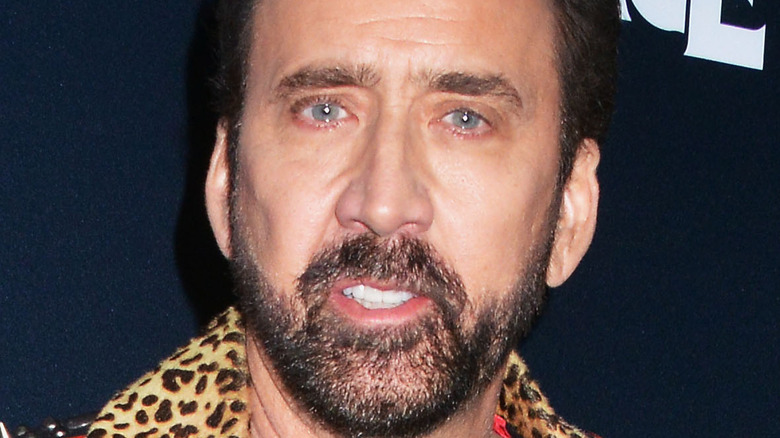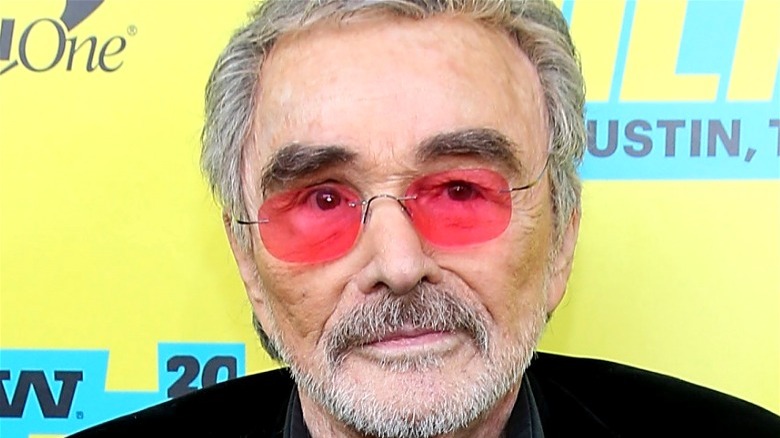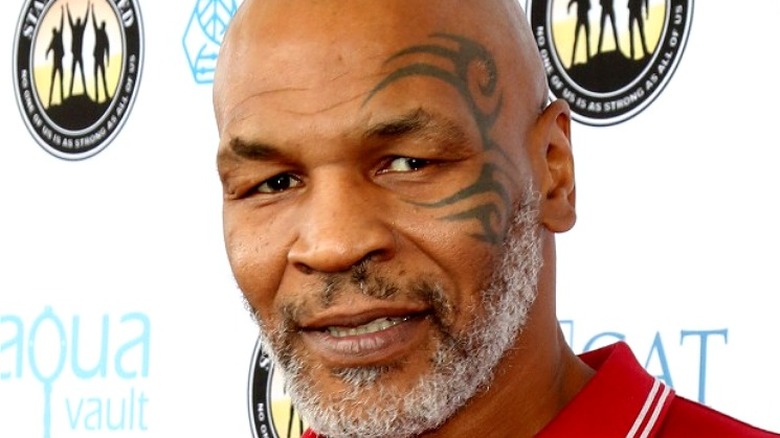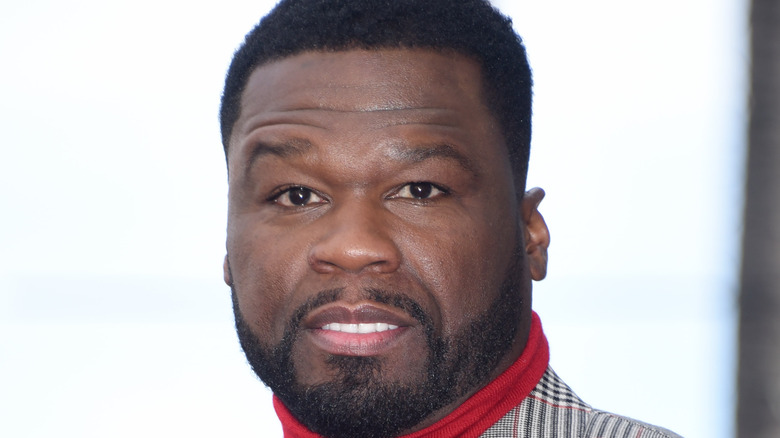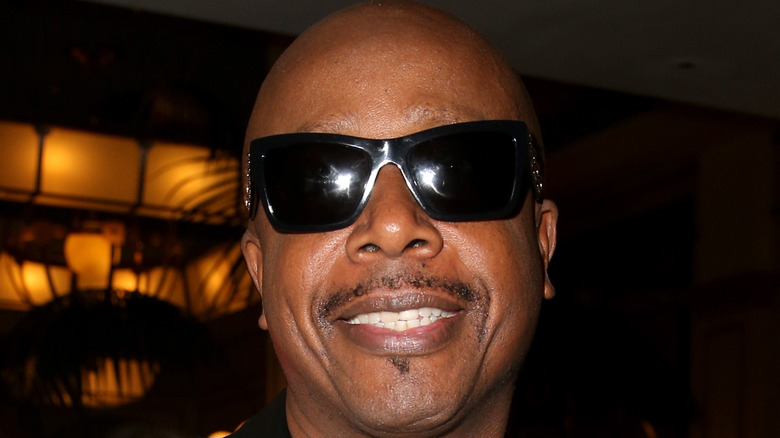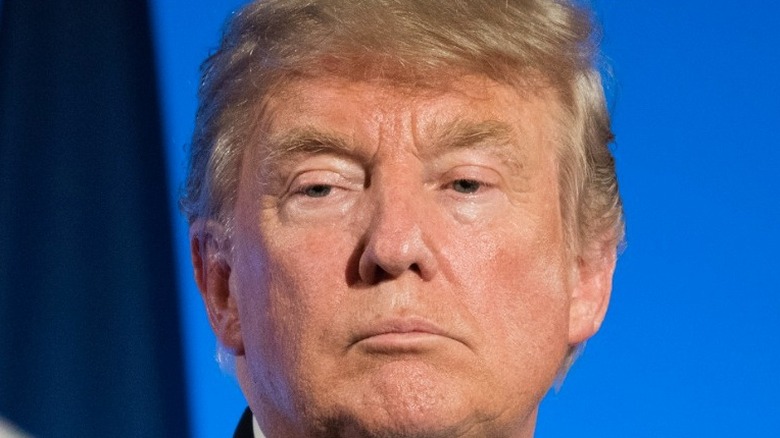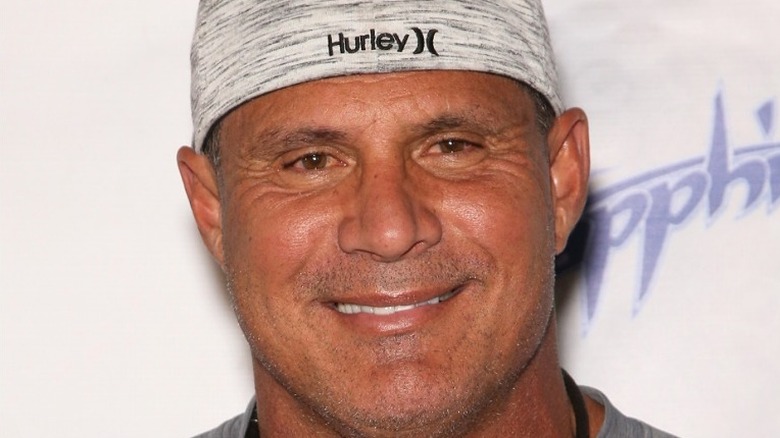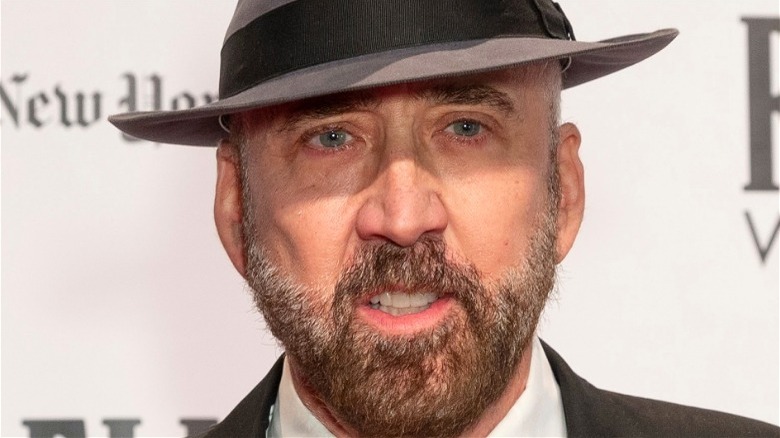Broke As A Joke: Dumb Reasons These Celebs Went Bankrupt
While some celebrities are responsible with their finances throughout their careers, others become enthralled by their newfound fame and fortune and fall down a hole of frivolous spending, tax evasion, and — in the worst of cases — bankruptcy. Between lavish purchases, costly divorce settlements, irresponsible management by their accountants, etc., it can be far too easy for celebrities to go from bringing in millions to losing it all and becoming broke.
For most celebrities, bankruptcy is a last resort taken to regain control over their debt, but for others, it can be an effective way to get a fresh start and erase previous financial troubles.
From celebrities like 50 Cent who went broke but made a strong financial comeback, to former president and businessman Donald Trump who claimed business bankruptcy six times, here are some of the dumbest reasons these celebrities lost their multi-million dollar fortunes and went bankrupt. And some of them are quite surprising!
Kim Basinger purchased a town in Georgia
By the start of the 1990s, Kim Basinger was one of the biggest names in Hollywood. Throughout the 1980s, she starred in "The Natural" and "Batman," which aided her rise in the film industry. By 1989, Basinger purchased most of the land in Braselton, Georgia, for $20 million, with plans to "transform Braselton into a tourist attraction with major recording and movie production studios," reported the Chicago Tribune. Despite her goals, however, the purchase did not turn out as planned.
In the early 1990s, Basinger was juggling both Braselton and different acting projects, including "Boxing Helena," which she initially agreed to take on in 1991. Conflicts between the actor and "Boxing Helena" co-producer Carl Mazzocone and screenwriter Jennifer Lynch allegedly made her pull out of the film. Howard Weitzman, Basinger's lawyer and spokesperson, told The New York Times, "Along the way, Kim felt she was lied to about approvals they were not willing to give. They didn't take to her script suggestions."
Basinger's sudden decision had strong repercussions, and she was sued by Main Line Pictures for breaching her oral contract for $7.4 million. By then, she was suffering financially, with her multi-million dollar business plan falling through and costing her millions, and now a lawsuit that would cost her even more. In 1993, Basinger filed for bankruptcy, with a net worth of approximately $5 million, per Variety.
Burt Reynolds invested in two restaurant franchises
Throughout the 1970s and 1980s, Burt Reynolds was an incredibly popular actor, known for his roles in the "Smokey and the Bandit" films, "Deliverance," and "Cannonball Ball." With a number of box office hits, Reynolds became one of highest-paid actors at the time, with an estimated net worth of $60 million, per Celebrity Net Worth.
During this period, Reynolds went on a bit of a spending spree. Vanity Fair reported some of Reynolds' pricey purchases included multiple properties, custom cars, a private jet, a helicopter, 150 horses, and $100,000 in toupees. While this excessive spending would seem to be the factor that led Reynolds to bankruptcy, it was actually a bad investment that caused him trouble.
At the peak of his career, Reynolds was persuaded by his business manager to invest in a chain of restaurants called Po' Folks, along with friend Buddy Killen. The investment was sour from the start, with Killen telling The Washington Post, "The service was bad, the quality of food was not holding up ... Everything that could go wrong went wrong." In an attempt to offset the loss, Reynolds was advised to invest in another chain, Daisy Diner, which also failed and cost him and Killen approximately $20 million. These failed investments, on top of a messy (and costly) divorce and the insufficient funds to repay a loan from CBS, caused Reynolds to file for bankruptcy in 1996. He was over $10 million in debt, per E! News.
Mike Tyson lost his fortune to reckless spending
At the height of his career, boxing legend Mike Tyson was worth $300 million, and was receiving boxing match payouts in the millions, per Celebrity Net Worth. In 1991, as his career was continuing to blossom, the boxer was arrested for the rape of Desiree Washington and found guilty of the crime in February 1992, for which he spent three years in jail, reported Newsweek. By the time of his release in 1995, Tyson became notorious for being a lavish spender and blowing through his money.
The boxer spent hundreds of thousands of dollars on a variety of things, ranging from jewelry to real estate and exotic tigers. According to The U.S. Sun, Tyson spent over $4 million on a car collection, $100,000 on Bengal Tigers, $2 million on a solid gold bathtub for his ex-wife Robin Givens, and lavish parties with a price tag in the $400,000 range, to name a few of his spending sprees.
By 2003, however, the boxer had blown through his $300 million fortune and filed for bankruptcy, claiming he was $23 million in debt. The debt partially included $13.4 million owed to the IRS, $4 million owed to British Tax Authorities, and $51,949 owed in child support, per The New York Times.
If you or anyone you know has been a victim of sexual assault, help is available. Visit the Rape, Abuse & Incest National Network website or contact RAINN's National Helpline at 1-800-656-HOPE (4673).
Curtis '50 Cent' Jackson went bankrupt because of a sex tape
50 Cent was an immensely popular rapper in the early 2000s, and even performed at the latest Super Bowl Halftime Show, but just a few years ago, he was in deep financial trouble. The rapper gained popularity in 2003 after the release of his debut album, "Get Rich or Die Tryin," which instantly became the bestselling album of the year, and included beloved hits "In Da Club" and "21 Questions" (per The Guardian). 50 Cent continued to grow his career as a rapper throughout the 2000s, while also investing in a number of different businesses, including Vitamin Water, with total earnings of approximately $100-$150 million, per Celebrity Net Worth.
While 50 Cent seemed to be financially well off, by 2015, he was deeply in debt. The rapper filed for bankruptcy that year, claiming nearly $36 million in debt. The filing came shortly after a court ruling required him to pay $7 million to Lastonia Leviston, the ex-girlfriend of rapper Rick Ross, for posting a sex tape of her online, reported The Wall Street Journal. Along with the $7 million payout to Leviston, 50 Cent lost $10 million the year before, due to failed business ventures. He also owed money to "his stylist, his barber and his fitness coach," per The Hollywood Reporter.
The swarm of legal battles and business issues left the rapper with too many expenses and not enough means to pay them, which resulted in his bankruptcy filing.
MC Hammer burned his fortune on mansions, cars, and horses
In the late 1980s and 1990s, MC Hammer was arguably one of the biggest names in the music world, with hits "U Can't Touch This" and "2 Legit 2 Quit" being some of the most popular songs of their time, both reaching the Top 10 of the Billboard Hot 100 list. While the musician was most known for his unique rapping style and dance moves, he was also known for his careless spending, which ultimately caused him financial problems.
By 1991, MC Hammer had an estimated net worth of $70 million and earned approximately $30 million a year, reported The Mirror. A majority of the rapper's expenses were attributed to his custom-built mansion in California. The home cost $30 million to build, which included "$2 million worth of marble, indoor and outdoor pools, three waterfalls and control panels that regulate temperature, humidity and even draw the draperies," per the Chicago Tribune. The rapper's additional expenses included tending to several horses, an extensive car collection, and a pricey entourage that allegedly cost him $500,000 a month, according to Celebrity Net Worth.
MC Hammer's days of excessive spending did not last long, and he filed for bankruptcy in 1996, claiming $13 million in debt and assets of only $1 million. His debt included $100,000 to both the IRS and the California State Franchise Tax Board, with other creditors including "his brother Lewis, limousine companies, department stores and utilities," reported SF Gate.
Donald Trump's businesses lost over $300 million due to mismanagement
While Donald Trump is now known for being a former president, prior to his days in politics, he was a businessman and real estate developer, though he seemed to constantly be facing significant monetary losses. Trump got his start as a businessman in the late 1970s, working with his father, Fred Trump, at The Trump Organization in Manhattan, according to Celebrity Net Worth.
A trust fund of $1 million, along with personal loans from his father, gave Trump the ability to explore different business ventures. In the 1980s, he primarily invested in casinos, hotels, and apartment buildings, but all proved to be failures. The New Yorker reported that, from 1985 to 1989, Trump's various businesses lost a total of $359.1 million, and continued to lose money over the years.
Trump filed for Chapter 11 bankruptcy a total of six times, first in 1991 and most recently in 2009. All but one of his bankruptcies involved his casinos, including the Taj Mahal and Trump Castle Hotel and Casino in Atlantic City, New Jersey, per NBC News. While he managed to stay afloat by declaring bankruptcy for his businesses, others, like former casino workers, were not as lucky. A report by Mother Jones noted casino employees under Trump "collectively lost millions of dollars in retirement savings when the company's value plummeted." Trump never personally declared bankruptcy, but did leave those working under him behind. As of 2022, he is worth $2 billion.
Toni Braxton filed twice in her career
Toni Braxton had a successful music career in the 1980s while a part of The Braxtons, but she is more widely known for her solo career, which took off in the 1990s. By 1996, she had achieved acclaim due to her massive hit "Un-Break My Heart," which spent 11 weeks at the No. 1 spot on the Billboard Hot 100 list. Despite her success, however, just two years later, Braxton found herself in the midst of a complicated lawsuit that would result in her bankruptcy.
According to the Los Angeles Times, her filing came "just eight weeks after Braxton filed a lawsuit against La Face Records and its parent company, Arista Records, seeking to terminate her recording contract." In addition to the lawsuit, the singer noted that careless spending also played a role in her financial losses. In a "20/20" interview, Braxton said (via ABC News), "I love dishes and house things, so I kind of lost it a little bit on the houseware. That's what I indulged in."
Despite this period of trouble, Braxton managed to get back on her feet following several album releases and acting gigs. In 2008, however, she found herself yet again in debt. Braxton had a set schedule of shows booked in Las Vegas, but had to cancel them due to angina, a condition that causes chest tightness and pain, per BBC News. This decision cost her millions, and resulted in her filing for Chapter 7 bankruptcy.
Jose Canseco blamed everyone but himself for being broke
One of the greatest power hitters in baseball history, Jose Canseco was once one of the biggest names in the sport. Throughout his career, he made a total of $45 million, including a five-year contract with the Oakland A's that was worth $23.5 million, according to Celebrity Net Worth. Despite his success in the 1980s and 1990s, however, he managed to blow through his fortune and claim bankruptcy.
Following his retirement from the MLB in 2006, Canseco had a brief stint with independent baseball leagues, but mainly remains popular on social media platforms like Twitter. In 2012, he filed for bankruptcy, claiming a total of $1.7 million in debt and only $21,000 in assets, per ESPN. He has attributed the depletion of his multi-million dollar fortune to a number of things, ranging from his two divorces, to taking care of family members, and even the government.
In a column Canseco wrote for Vice, he touched on the government's role in his bankruptcy, writing, "If you've got friends and family, the more money you make the more you spend on them. So let's say you spend half your money on them and the rest on yourself and the cost of living. It may so happen that during all of that you forget to pay your taxes. And then all of a sudden penalties and interest start to add up, and you're in a pool of quicksand from which you cannot escape."
Larry King was fired from his jobs after an arrest
Larry King managed to establish himself as one of the most successful radio and TV hosts in the media for over five decades. At the time of his death, King was worth $50 million and was arguably financially well off (per Celebrity Net Worth). Before his start as the media figure we know today, however, he had a rocky relationship with finances and had to file bankruptcy.
King's career in broadcast journalism took off in the 1960s, when he got a job as a radio announcer for a station in Miami. Throughout the decade, he managed to establish himself as a reputable journalist. By 1971, however, the career he worked so hard for came crashing down after he was "charged with grand larceny for allegedly stealing $5,000 from his business partner, Wall Street financier Louis Wolfson," Time reported. Though the charges against him would be dropped, King was fired and essentially blacklisted from any broadcast journalism jobs, leaving him out of the industry for four years.
During this time, King fell deep into debt. He had married and divorced several women in the 1960s and 1970s, and, along with being out of work, his finances didn't look good. In 1978, King filed for bankruptcy, claiming over $350,000 in debt (per Time). The same year King filed for bankruptcy, he was offered his own radio talk show, which would become "Larry King Live" and remain on the air for 25 years.
Curt Schilling invested everything in his video game company
A renowned pitcher for baseball teams like the Philadelphia Phillies and the Arizona Diamondbacks, Curt Schilling was one of the biggest names in the sport. According to Celebrity Net Worth, he earned $114 million throughout his baseball career, and additional millions in endorsements. Following his retirement, Schilling had interest in the video game industry and, in 2006, created 38 Studios. To his dismay, however, the company turned out to be a financial disaster and led to the loss of his entire fortune.
From the very beginning of 38 Studios, Schilling knew what his dream needed to survive. In an interview with Boston radio show WEEI, he said (via The Boston Globe), "One of the going concerns from Day One ... is we needed to raise capital. We tried for a long time to do that and it didn't come to fruition." He invested $50 million into the company and also received a $75 million loan from the state of Rhode Island and $5 to $10 million from other investors. The loan from Rhode Island intended to bolster the economy of Providence, where Schilling promised to move 38 Studios to, and provide jobs for over 400 employees, per Boston Magazine.
A series of bad financial decisions, failed deals, and an inability to pay employees caused the demise of 38 Studios, and resulted in Schilling's company filing for bankruptcy, claiming $150.7 million in debt and only $21.7 million in assets, reported NBC News.
Honorable Mention: Nicolas Cage once bought a dinosaur skull worth hundreds of thousands
Nicolas Cage has an acting career spanning over four decades and is known to be eccentric in both his personality and his spending habits. While he has not formally declared bankruptcy, he managed to burn through his $150 million fortune on a variety of expensive items ranging from cars and mansions, to more unusual ones like a haunted house and a dinosaur skull, per Celebrity Net Worth.
From the mid-1990s to 2010, Cage was earning approximately $40 million per year, making him one of the richest actors in Hollywood, The Street reported. While his income continued to increase, Cage went on a spending spree that resulted in him losing most of his money and being on the brink of bankruptcy. According to CNBC, some of Cage's extravagant purchases included 15 residences (including a $25 million waterfront home in Newport Beach, California; the haunted LaLaurie mansion in New Orleans; two European castles; and an island in the Bahamas), a $150,000 pet octopus, and a $276,000 dinosaur skull.
Cage's days of spending quickly came to an end in 2009, when several of his properties were lost due to foreclosure. At the time, the homes were worth millions of dollars. Cage also owed $6 million to the IRS for unpaid property taxes, reported CNN Money. Following this period of financial trouble, Cage was able to take on different acting projects and stay afloat while paying his debts.

